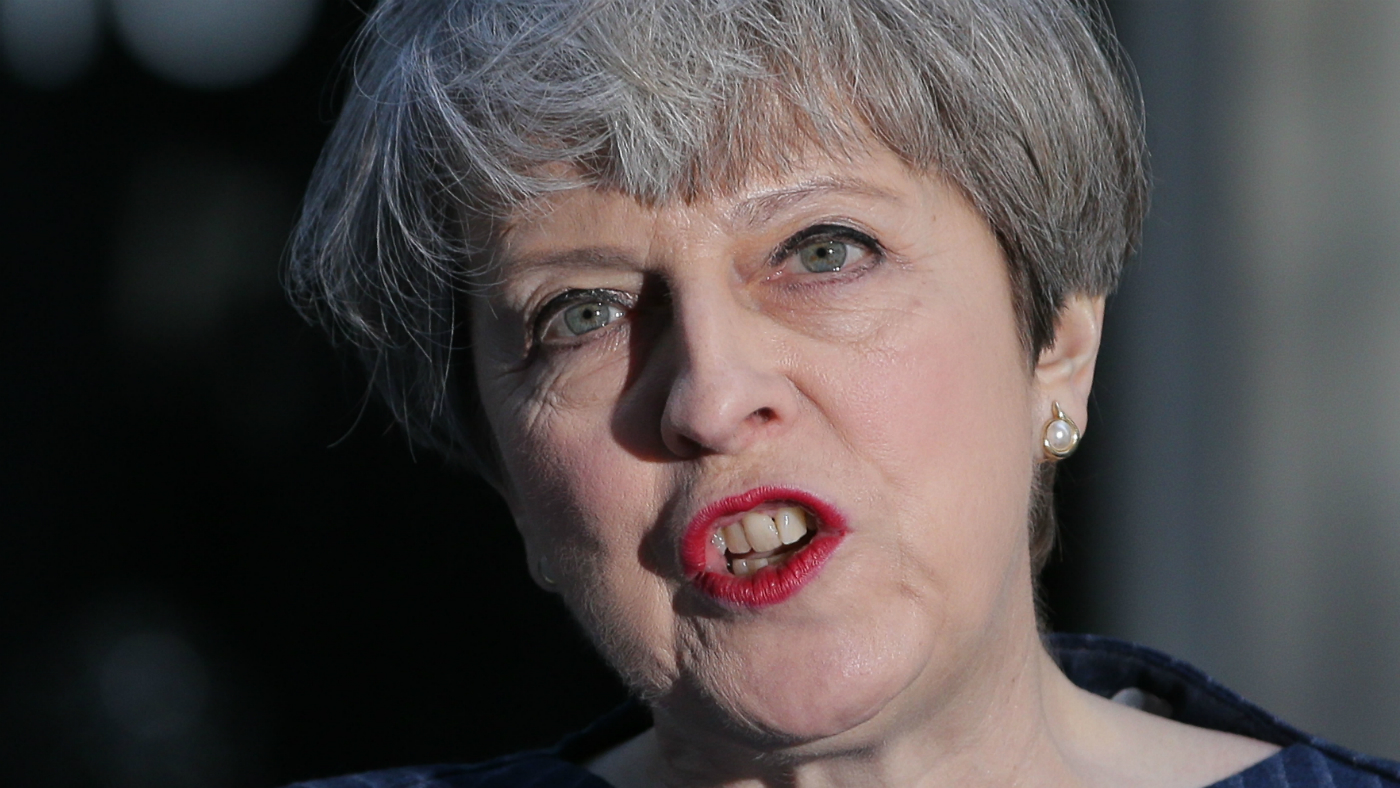Election 2017: Why did Theresa May call a general election and what happens next?
The Prime Minister repeatedly said she would not go to the polls, yet the country is preparing for another campaign

A free daily email with the biggest news stories of the day – and the best features from TheWeek.com
You are now subscribed
Your newsletter sign-up was successful
Theresa May has confirmed she intends to call a snap general election on 8 June, despite previously saying she would not go to the polls before 2020.
The Prime Minister framed her apparent U-turn as an attempt to end "political gameplaying" and guarantee the UK a strong government for Brexit negotiations.
"At this moment of enormous national significance there should be unity here in Westminster, but instead there is division," she said.
The Week
Escape your echo chamber. Get the facts behind the news, plus analysis from multiple perspectives.

Sign up for The Week's Free Newsletters
From our morning news briefing to a weekly Good News Newsletter, get the best of The Week delivered directly to your inbox.
From our morning news briefing to a weekly Good News Newsletter, get the best of The Week delivered directly to your inbox.
Why has May called a general election?
Opposition parties have criticised the government's plans for leaving the EU, with the most frequent accusation being that voters - including many who voted Leave - do not want the hard Brexit the government is preparing to implement.
Going to the public is a simple and definitive way to put an end to this line of attack. A clear victory would give the government's Brexit strategy legitimacy.
"This election should kill stone dead any Remainer dream that Brexit can be stopped," says The Spectator's James Kirkup.
A free daily email with the biggest news stories of the day – and the best features from TheWeek.com
Of course, putting "hard Brexit" to the test is a risk, but many analysts believe the Prime Minister's announcement was strategically timed to capitalise on recent polls giving the Tories a 21 per cent lead over Labour.
May's surprise election is a "bid to cement her party's grip on power", says The Independent.
What does she stand to gain?
A mandate, crucially. After David Cameron resigned in June, May was elected to take over as party leader and therefore became prime minister.
Consequently, as with Cameron's predecessor Gordon Brown, she has not been directly elected by voters and that puts limits on her influence not just over Brexit, but over all government policies.
With a slim majority in the Commons and no popular mandate to lean on, May must tread lightly or risk accusations of imposing her unelected will on the country.
As a result, she has struggled to push through some of her key proposals - backbench rebellion earlier this year forced an embarrassing U-turn on increasing National Insurance payments for self-employed workers.
A general election will leave May free to "ditch the 2015 Tory manifesto, and campaign on her own policies", says the Financial Times.
If she leads the Tories to victory, the PM will be able to stick to her guns on divisive issues such as building new grammar schools in the name of representing the electorate.
She will also be hoping to increase the Conservatives' majority, which will make it far easier to pass any Brexit deal.
Will May's gamble pay off?
A snap election could consolidate the Tories' power at a moment when the Labour Party is in turmoil, with questions continuing to be asked over Jeremy Corbyn's suitability as leader.
However, pollster Professor John Curtice says the current frenzied political atmosphere means polls could change dramatically over the next six weeks, The Guardian reports.
"Theresa May is very much going for a 'Vote Conservative for my vision of Brexit,'" he said. "If that lead were to narrow, then we could discover that she is back with a rather smaller majority than perhaps she is hoping for."
What happens now?
Under the Fixed Term Parliaments Act, May must have the approval of two-thirds of the Commons to curtail the current session of parliament, which isn't due to finish until 2020.
However, this should not pose a problem. Although Labour theoretically have enough seats to block the motion, Jeremy Corbyn has confirmed that his MPs will vote with the government, saying the party "looks forward" to offering the country an "effective alternative" to the Tories.
After the motion is approved, the parties have six weeks to get their message to the electorate.
-
 5 cinematic cartoons about Bezos betting big on 'Melania'
5 cinematic cartoons about Bezos betting big on 'Melania'Cartoons Artists take on a girlboss, a fetching newspaper, and more
-
 The fall of the generals: China’s military purge
The fall of the generals: China’s military purgeIn the Spotlight Xi Jinping’s extraordinary removal of senior general proves that no-one is safe from anti-corruption drive that has investigated millions
-
 Why the Gorton and Denton by-election is a ‘Frankenstein’s monster’
Why the Gorton and Denton by-election is a ‘Frankenstein’s monster’Talking Point Reform and the Greens have the Labour seat in their sights, but the constituency’s complex demographics make messaging tricky
-
 The high street: Britain’s next political battleground?
The high street: Britain’s next political battleground?In the Spotlight Mass closure of shops and influx of organised crime are fuelling voter anger, and offer an opening for Reform UK
-
 Biggest political break-ups and make-ups of 2025
Biggest political break-ups and make-ups of 2025The Explainer From Trump and Musk to the UK and the EU, Christmas wouldn’t be Christmas without a round-up of the year’s relationship drama
-
 ‘The menu’s other highlights smack of the surreal’
‘The menu’s other highlights smack of the surreal’Instant Opinion Opinion, comment and editorials of the day
-
 Is a Reform-Tory pact becoming more likely?
Is a Reform-Tory pact becoming more likely?Today’s Big Question Nigel Farage’s party is ahead in the polls but still falls well short of a Commons majority, while Conservatives are still losing MPs to Reform
-
 Taking the low road: why the SNP is still standing strong
Taking the low road: why the SNP is still standing strongTalking Point Party is on track for a fifth consecutive victory in May’s Holyrood election, despite controversies and plummeting support
-
 Is Britain turning into ‘Trump’s America’?
Is Britain turning into ‘Trump’s America’?Today’s Big Question Direction of UK politics reflects influence and funding from across the pond
-
 What difference will the 'historic' UK-Germany treaty make?
What difference will the 'historic' UK-Germany treaty make?Today's Big Question Europe's two biggest economies sign first treaty since WWII, underscoring 'triangle alliance' with France amid growing Russian threat and US distance
-
 Entente cordiale: will state visit help UK-French relations get over Brexit?
Entente cordiale: will state visit help UK-French relations get over Brexit?Today's Big Question The King, a keen Francophile who has a warm relationship with Emmanuel Macron, will play a key role in state visit